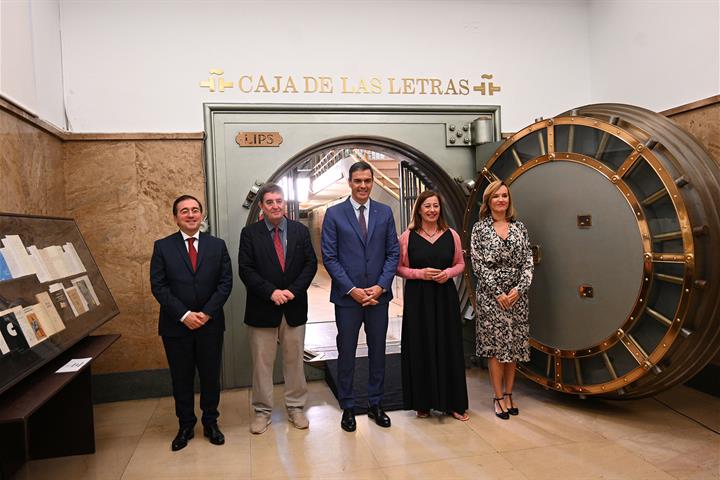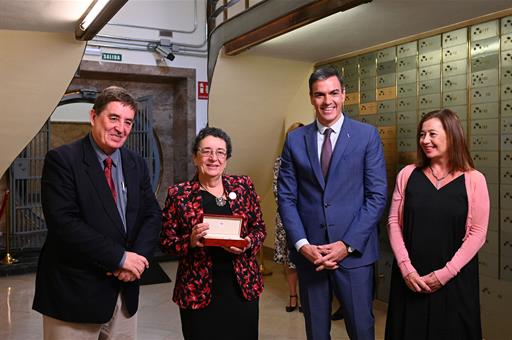Sánchez describes the use of co-official languages as "democratic normality" and affirms that "time will eventually prove progress and coexistence right"
President's News - 2023.9.25
Headquarters of the Cervantes Institute, Madrid
A special edition of Federico García Lorca's poem 'Grito hacia Roma', translated into all the official languages of the EU and the official languages of Spain, was presented at the event. The legacy of Rosalía de Castro was also handed over to the Caja de las Letras of the Cervantes Institute.
In his speech, the acting president began by stressing that more than two hundred languages are spoken in Europe, "something unique in the world and exceptional for its singularity", which "deserves the highest level of protection from all the institutions of the EU".
After stressing "our linguistic plurality" as a "unique value" that "defines us and makes us who we are", and a few days after the approval of the amendment to the Rules of Procedure of the Lower House of Parliament regarding the use of co-official languages, Pedro Sánchez pointed out that "listening in parliament to the languages with which our compatriots name the reality of Spain is essential", first because "these languages form part of the great cultural legacy of our country and we must take care of them", and second because "protecting a language is also a political decision. So is censoring one or constraining one"
He went on to say that "some people are want to caricature this effort, and there are even those who invent battles and conflicts where there is only democratic normality. To those who reason in this way, I would say -with all due respect- that as in so many other achievements and advances, time will eventually prove progress and coexistence right. Instead of the transient noise of the present, the hope of tomorrow," he added.
 Pedro Sánchez, together with the Minister for Foreign Affairs, European Union and Cooperation, the director of the Cervantes Institute, the president of Lower House of Parliament, and the Minister for Education and Vocational Training | Foto: Pool Moncloa/Borja Puig de la Bellacasa
Pedro Sánchez, together with the Minister for Foreign Affairs, European Union and Cooperation, the director of the Cervantes Institute, the president of Lower House of Parliament, and the Minister for Education and Vocational Training | Foto: Pool Moncloa/Borja Puig de la Bellacasa
In his speech, the acting chief executive also stated that "pride in a national identity should never be confused with a closed feeling or with a rejection of knowledge of others". And that "the example of Lorca is very clear", as he was "a national poet, with a significant sense of belonging", but he was "always open to all forms of culture".
And I believe that this," he said, "is the best anticipation of today's Spain, which is going to become evident again this very week, just a few metres from here. An open, modern and tolerant country. A country that is plural in its ideologies, in its cultures and diverse in its languages. Plural on the streets and plural in parliament. A democracy where reasoned speech renders insults meaningless. A full democracy with solid institutions that translate into government the popular will expressed by all Spaniards every time there are free and equal elections expressed at the ballot box".
Also speaking at the event where the poem 'Grito en Roma' was read in the official languages of Spain and in several official European languages, were the director of the Cervantes Institute, Luis García Montero, and the president of the Consello da Cultura Galega, Rosario Álvarez. Also in attendance were the Minister for Foreign Affairs, European Union and Cooperation, José Manuel Albares, and the Minister for Education and Vocational Training, Pilar Alegría.
Non official translation





